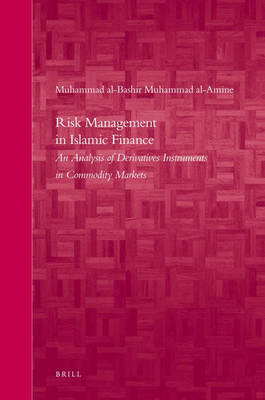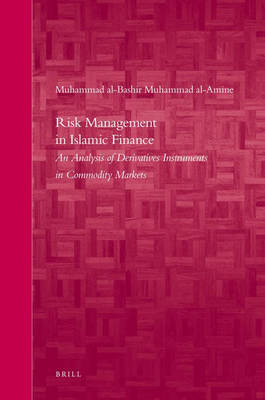
- Afhalen na 1 uur in een winkel met voorraad
- Gratis thuislevering in België vanaf € 30
- Ruim aanbod met 7 miljoen producten
- Afhalen na 1 uur in een winkel met voorraad
- Gratis thuislevering in België vanaf € 30
- Ruim aanbod met 7 miljoen producten
Zoeken
Risk Management in Islamic Finance
An Analysis of Derivatives Instruments in Commodity Markets
Muhammad Al-Bashir Muhammad Al-Amine
€ 368,95
+ 737 punten
Omschrijving
This study addresses the derivatives instruments in Islamic finance and highlights their benefits and legal aspects. It also discusses the forward, futures and options contracts in commodity markets. Arguments both in favour of and against these instruments are addressed and several alternatives are examined as well.
Specificaties
Betrokkenen
- Auteur(s):
- Uitgeverij:
Inhoud
- Aantal bladzijden:
- 362
- Taal:
- Engels
- Reeks:
- Reeksnummer:
- nr. 1
Eigenschappen
- Productcode (EAN):
- 9789004152465
- Verschijningsdatum:
- 13/11/2008
- Uitvoering:
- Paperback
- Formaat:
- Trade paperback (VS)
- Afmetingen:
- 165 mm x 244 mm
- Gewicht:
- 725 g

Alleen bij Standaard Boekhandel
+ 737 punten op je klantenkaart van Standaard Boekhandel
Beoordelingen
We publiceren alleen reviews die voldoen aan de voorwaarden voor reviews. Bekijk onze voorwaarden voor reviews.








